University Assignment: Strategic Analysis of Yokogawa Corporation
VerifiedAdded on 2023/04/23
|6
|828
|68
Report
AI Summary
This report presents a strategic analysis of Yokogawa Electric Corporation, examining its current issues, internal and external factors, and competitive advantages. The analysis utilizes the VRIO framework to assess Yokogawa's resources and capabilities, highlighting its value, rarity, imitability, and organizational strengths. The report identifies key competitive advantages, including strong customer relationships, value creation in bio-economy, and cost reduction strategies. It also acknowledges external challenges such as governmental policies and technological changes. Furthermore, the report proposes a detailed strategic action plan focusing on digital transformation, including the development of IIoT infrastructure, formation of a new department to monitor the framework, and investment in IT. The plan emphasizes the importance of industrial IoT, OT-IT convergence, and the integration of sustainability development goals. The plan also includes utilizing AI, cloud platforms, and process automation to improve business and customer valuation. Overall, the report offers recommendations for Yokogawa's sustainable development and strategic growth.
1 out of 6
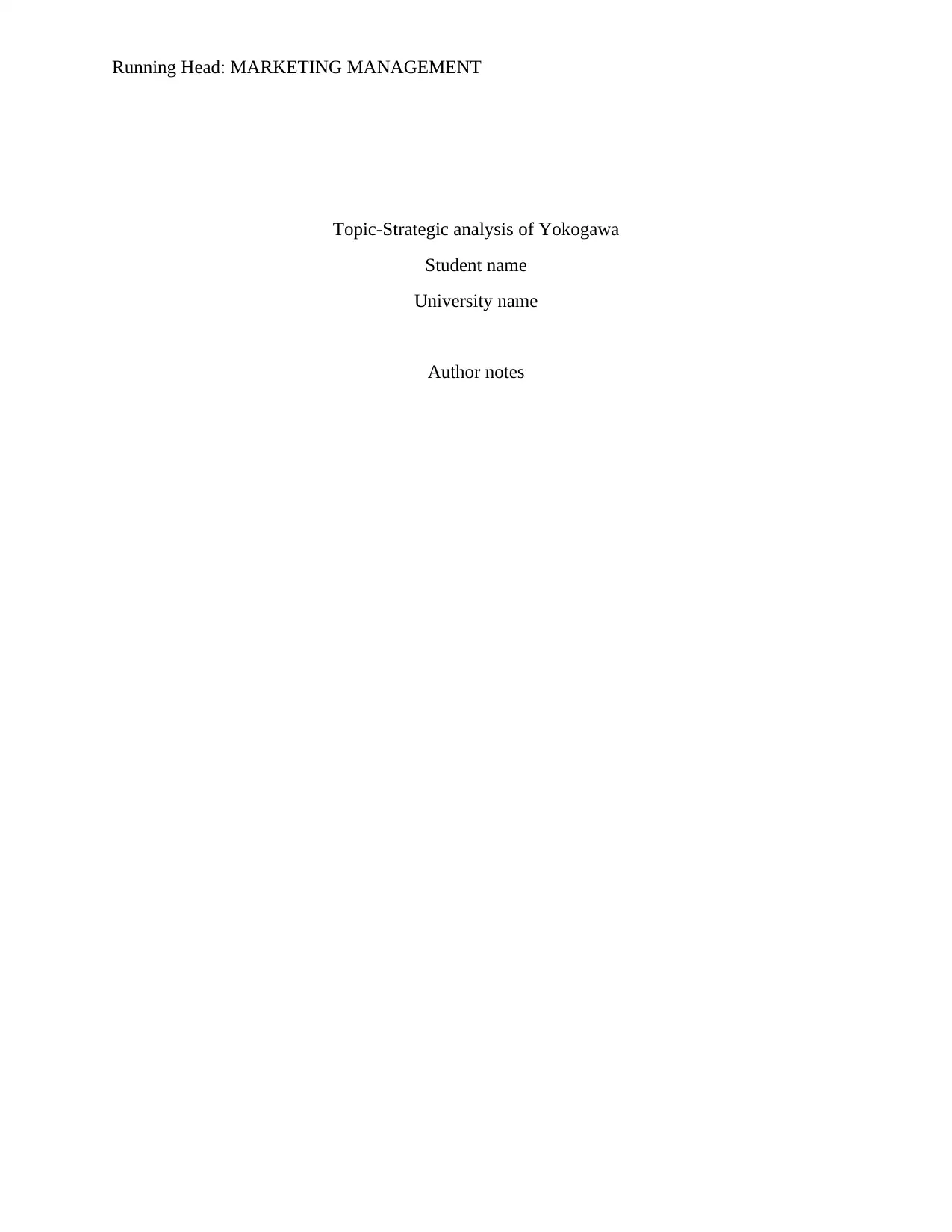
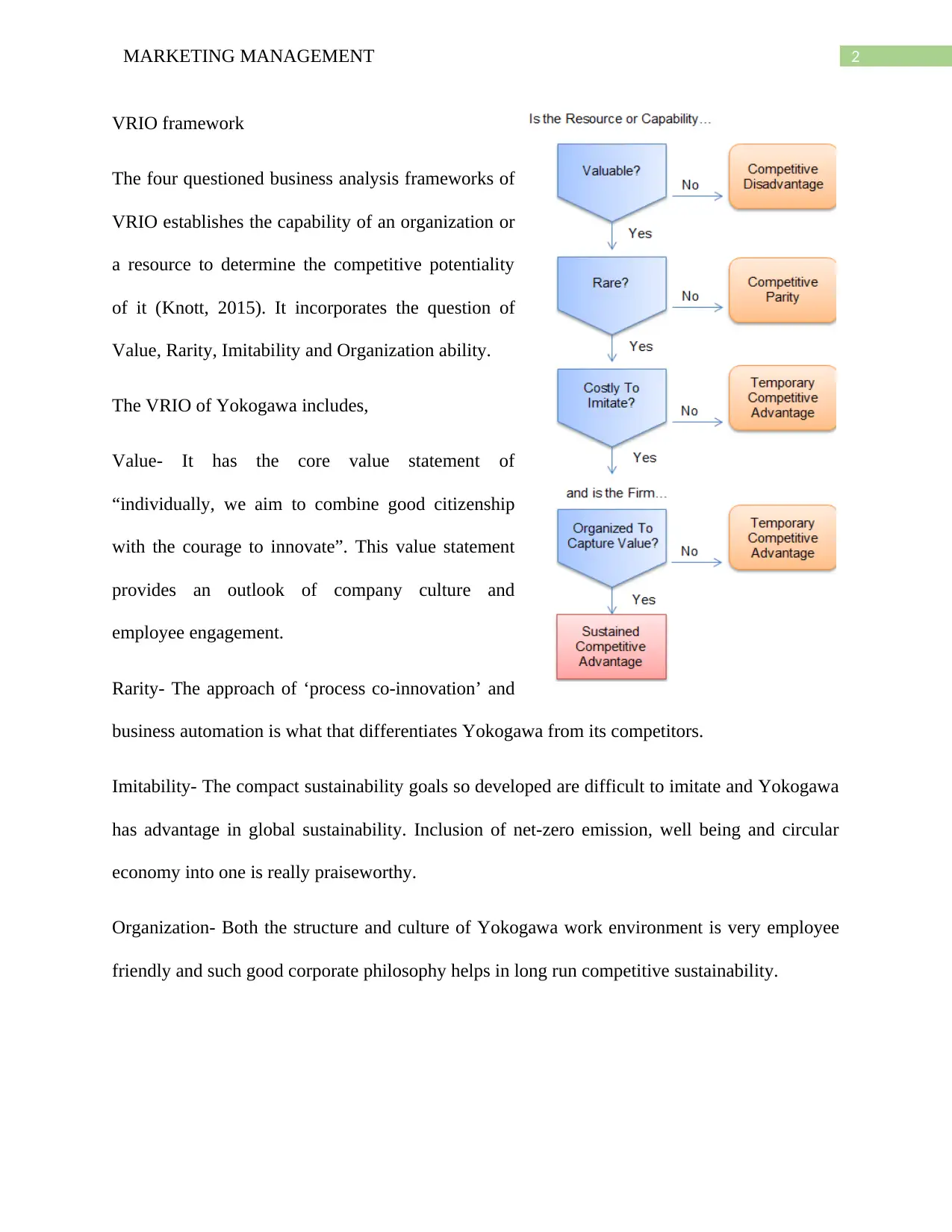
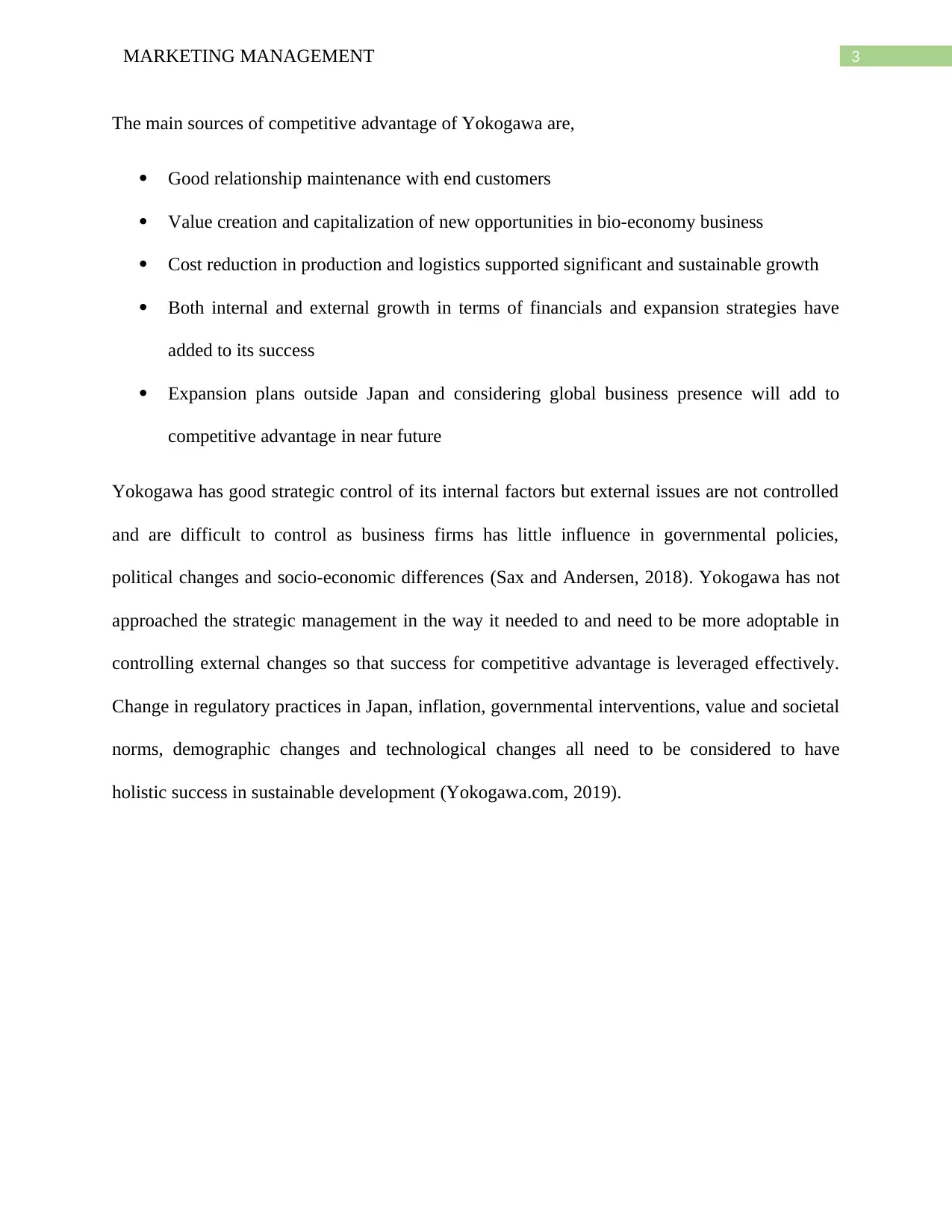

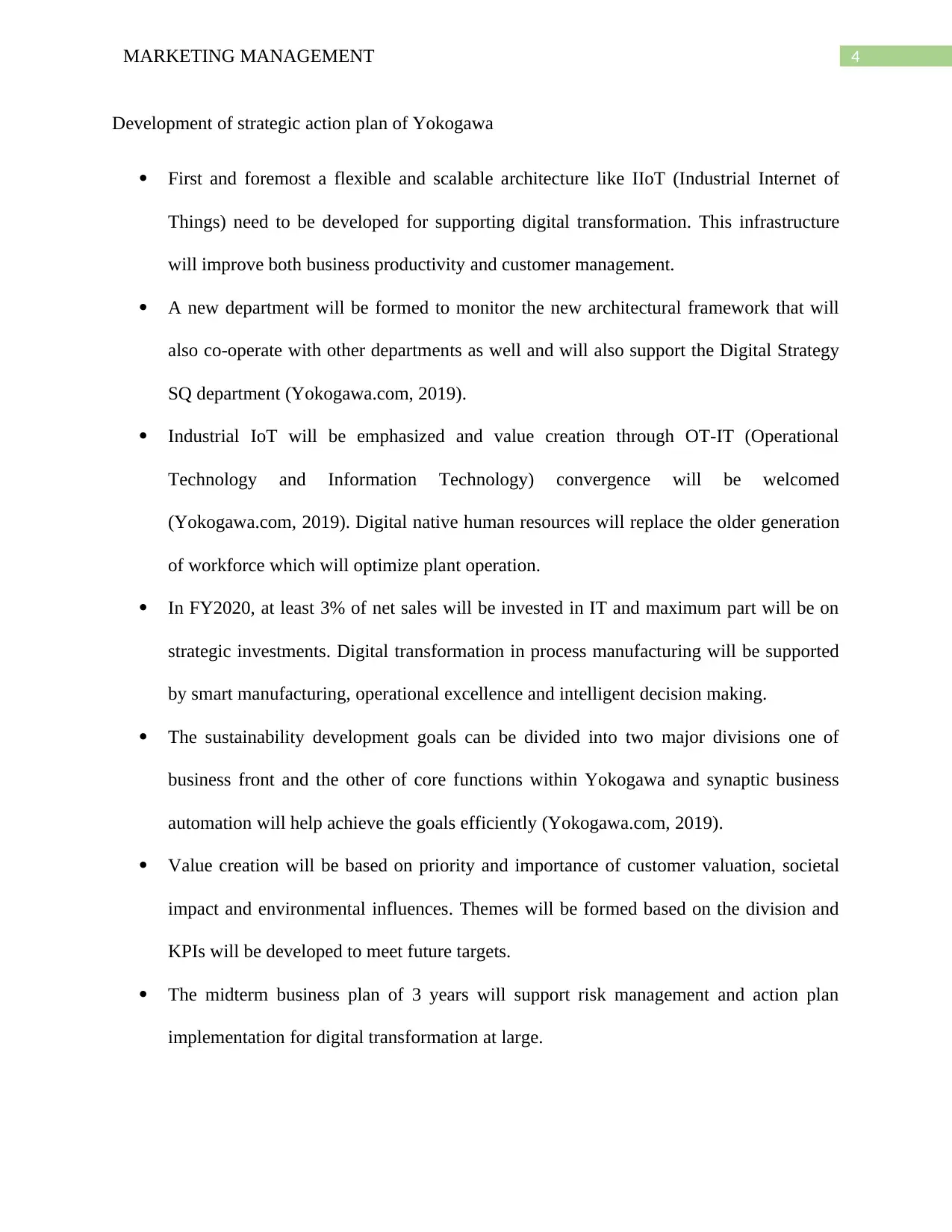
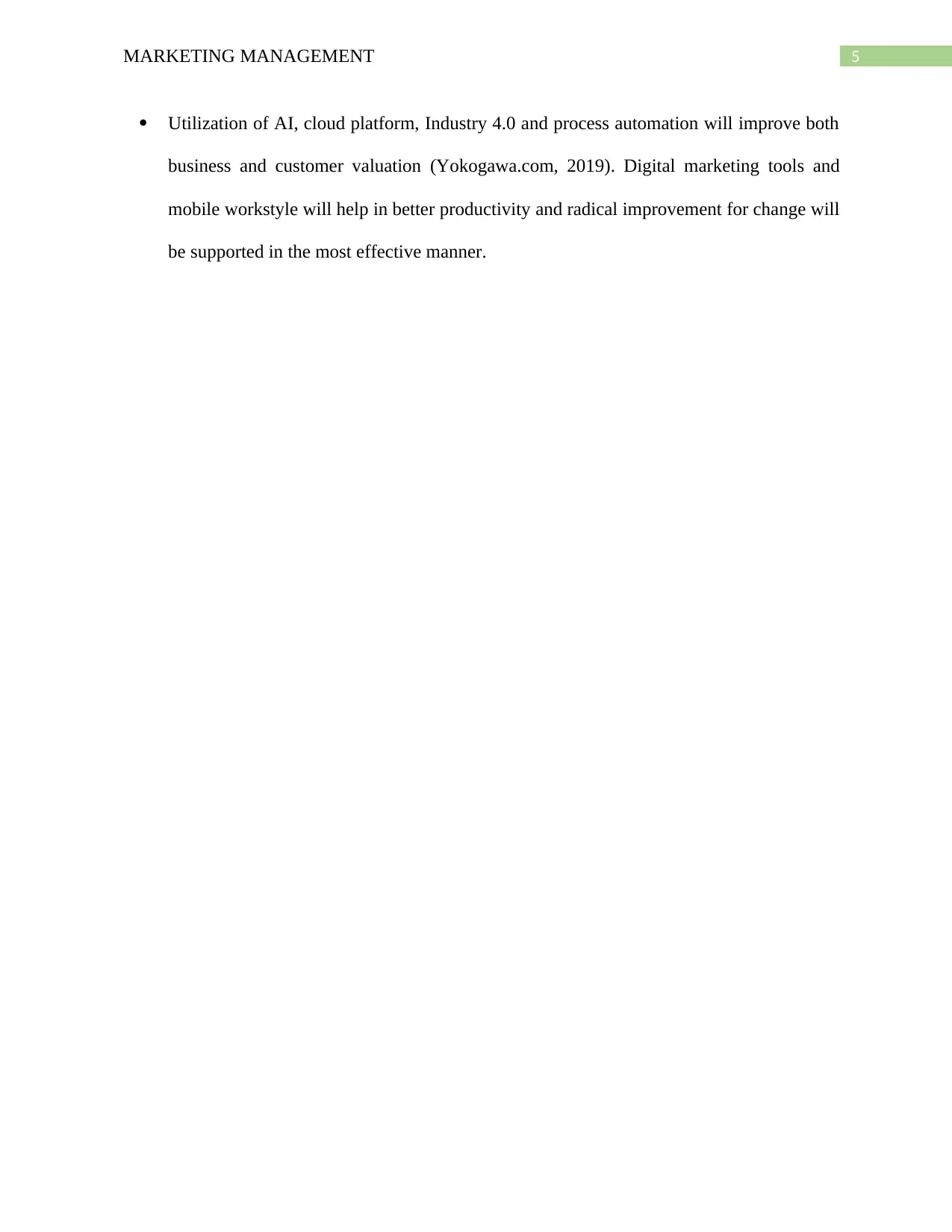
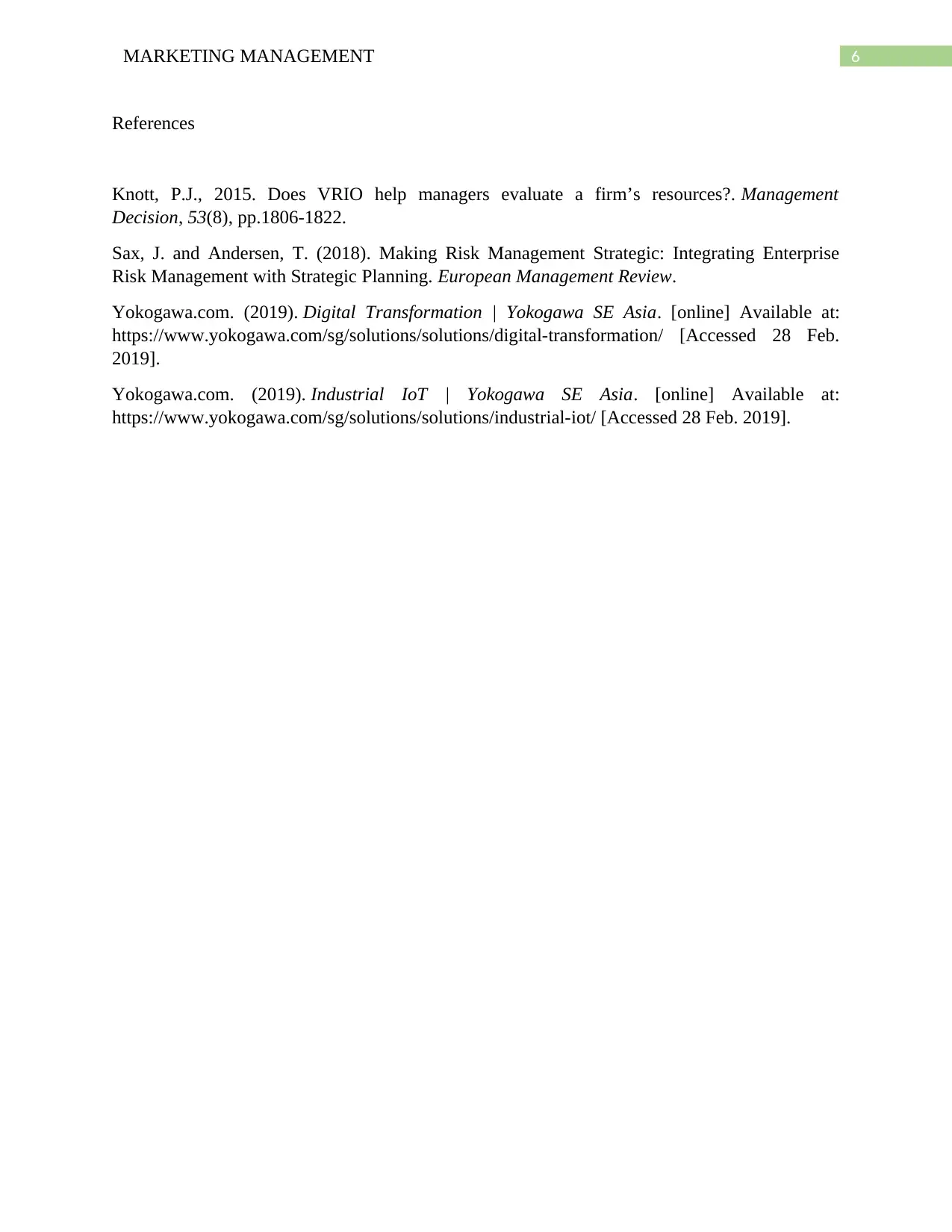






![[object Object]](/_next/static/media/star-bottom.7253800d.svg)